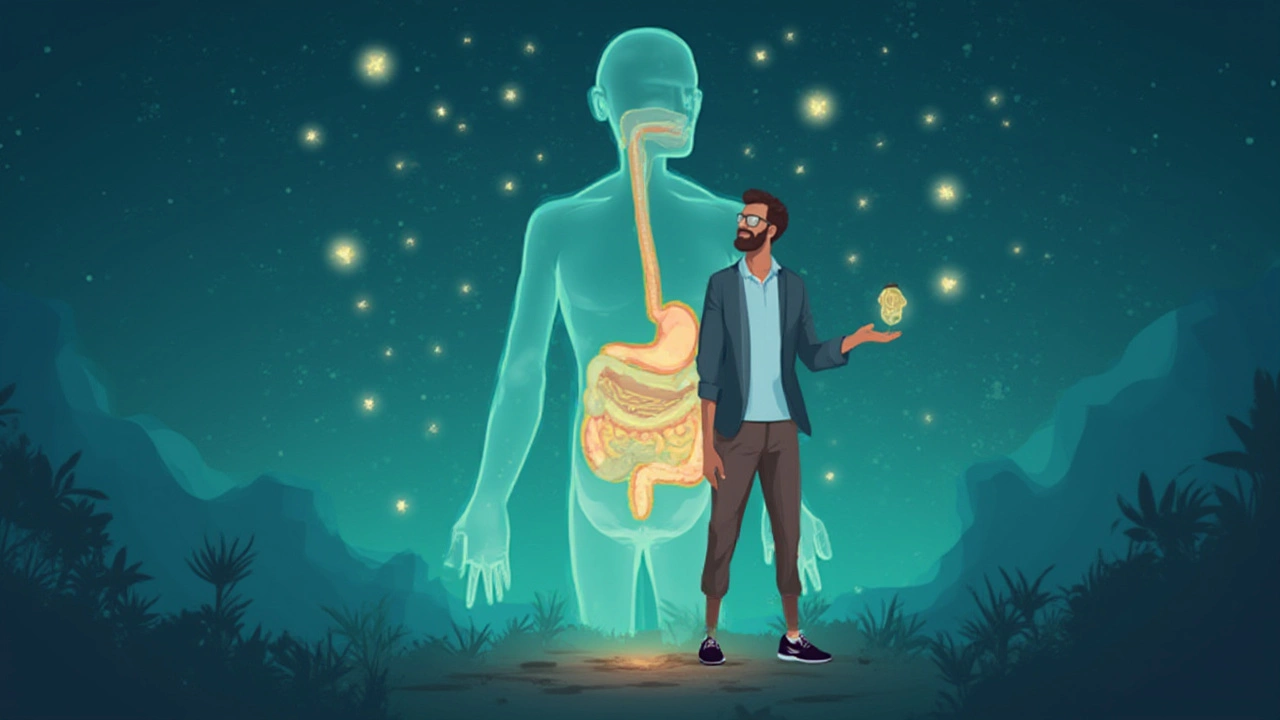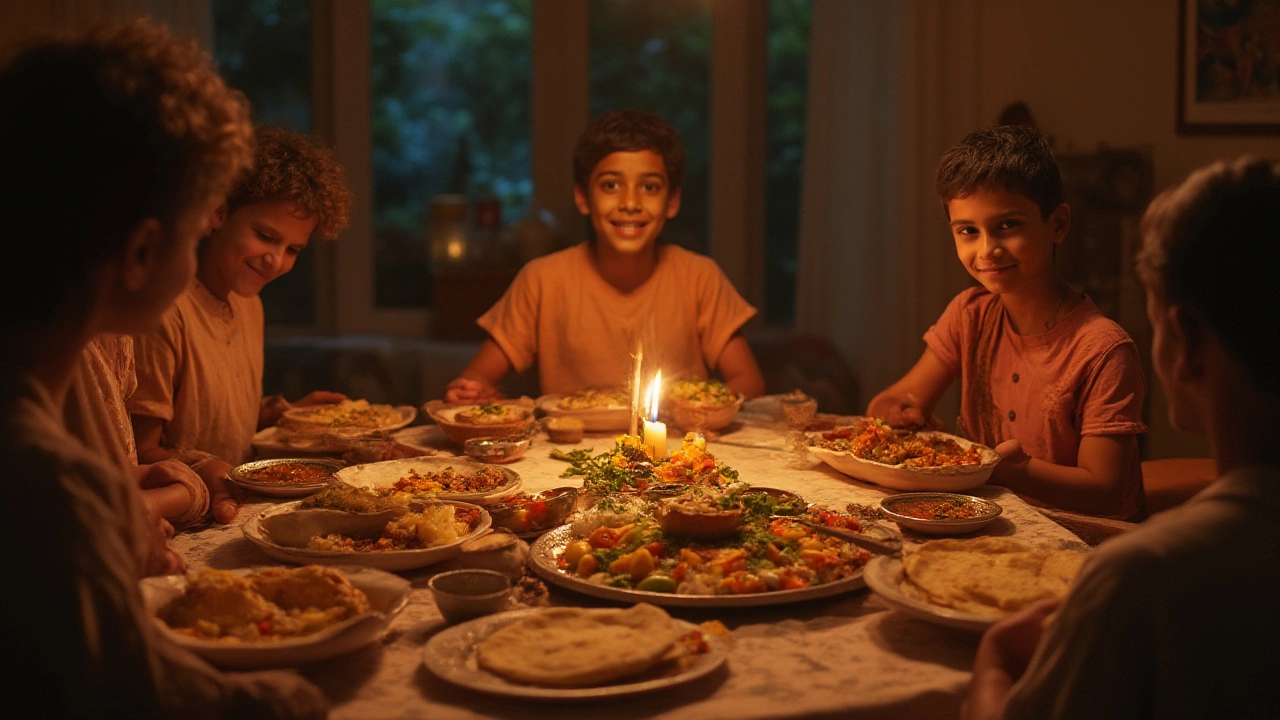Ever found yourself ladling a comforting bowl of dal into your plate at dinner only to hear, “Don’t eat dal at night—it’s hard on your stomach!” This warning gets tossed around so casually, especially in Indian households, that it can start to feel like science. Even as someone who practically survived the first year of motherhood on moong dal khichdi, these whispers still pop up everywhere, making you wonder if there’s truth to them—or if we just like passing down food ‘rules’ along with family recipes.
The Science Behind Dal and Nighttime Digestion
You’ve probably heard conflicting advice about the perfect dinner, but dal—a staple in Indian kitchens—often gets a red flag after sunset. Why? The main argument is that lentils (the base of dal) are rich in protein and fiber, which some say can be heavy for your digestive system at night. But what really happens inside your body when you eat dal at dinner?
Lentils like moong, urad, masoor, and chana are packed with proteins and complex carbohydrates. These nutrients take a bit more effort to break down compared to simple carbs. At night, your metabolism naturally slows down, and your digestive organs prepare for a period of rest. The traditional logic goes: eating foods that require more digestive work might not allow your system to ‘relax,’ possibly causing discomfort, gas, or disturbed sleep. But how much of that is fact, and how much is habit or family folklore?
If you look at modern nutrition research, healthy digestive systems handle dal well at any hour. Where issues crop up is for folks with preexisting digestive woes—like irritable bowel syndrome or acid reflux. Spicy tadkas, heavy ghee, or oil-laden dals can indeed irritate sensitive stomachs, making nighttime indigestion more likely. One Indian study published in 2023 (AIIMS, New Delhi) reported that about 18% of those with night-time bloating after eating dal also showed signs of mild lactose intolerance—most likely from the added milk or paneer, not the lentils themselves!
Stick to lighter dals (like split moong or masoor) and avoid extra-tempered, oily versions if you’re worried. Using hing (asafoetida), cumin, ginger, and avoiding too much onion or garlic at dinner can also make dal more digestible. My own family has found that recipes with less red chili and oil don’t cause anyone to complain about tummy aches come bedtime—even my son Neerav, who’s notorious for midnight snack raids.
Here’s a quick, geeky peek at how different dals compare on the ‘lightness’ scale:
| Dal Type | Protein (g/100g) | Fiber (g/100g) | Digestibility (1-5) |
|---|---|---|---|
| Moong Dal (split) | 24 | 8 | 5 (Very easy) |
| Masoor Dal | 25 | 11 | 4 (Easy) |
| Chana Dal | 21 | 12 | 3 (Moderate) |
| Urad Dal | 23 | 12 | 2 (Heavier) |
Notice how moong dal stands out as the easiest on your belly? My go-to rule: if you’re craving dal at night, keep the recipe simple, light, and less oily—your digestive system will thank you.
Common Myths About Eating Dal At Night
Stories about dal being "forbidden" at dinner have been around for generations. Most of these warnings stem from old Ayurvedic texts or grandma’s kitchen tales, and they can start to sound like established fact. Here are some of the most popular myths I grew up hearing, and what actually checks out.
- Dal gives you gas if eaten at night. Lentils do contain oligosaccharides, stubborn carbohydrates that some stomachs find tricky, leading to gas and bloating. But the truth is, this effect varies dramatically from person to person, and from dal type to dal type. For example, soaking dal before cooking and discarding soaking water reduces these compounds, making your meal gentler on the tummy. Pairing dal with cumin, ginger, and turmeric further eases digestion.
- Dal interrupts sleep. The concern here is that dal’s protein and complex carbs supposedly make your body ‘work harder’ at night. Honestly, unless you’re eating three bowls with heavy roti and sabzi, a sensible serving won’t send your system into overdrive. One little-known fact: dal contains tryptophan, an amino acid known to help produce serotonin and melatonin—both linked to better sleep!
- Dal leads to weight gain if eaten before bed. The physics of calories still rule: eating more calories than you burn leads to weight gain, regardless of when you eat. Dal itself is not ‘fattening’; what matters is your overall diet and portion size. If you’re managing your weight, watch what you pair with dal—heavy parathas or extra ghee are the real culprits.
- Ayurveda says no dal after sunset. Ayurveda does suggest lighter meals at night but picks moong dal as the exception—often recommended in kitchari for its easy-to-digest, balancing properties. So if Ayurveda is your reference, skip chana or urad but go ahead and try moong dal!
It’s wild how these myths persist, but once you untangle them, you realize that dal isn’t the villain. If I had a rupee for every ‘don’t eat dal at night’ I’ve heard at family gatherings, well… I’d probably own a dal factory by now.

Practical Tips: How to Enjoy Dal for Dinner Without Regret
Okay, so maybe you’re still a little nervous. You want your cozy dal but aren’t keen on ending up with a rumbly tummy or poor sleep. Here’s what helped my household (after plenty of post-dinner debates and a few rounds of midnight antacids):
- Choose lighter lentils. Moong dal (yellow split) and masoor dal are easily digested compared to heavier chana or urad varieties. If you’re new to eating dal at night, try these first.
- Soak and rinse well. Always soak your dal for at least 30 minutes, then drain and rinse. This simple step removes some of the gas-causing compounds, leading to easier digestion.
- Spice it cleverly. Add cumin, ginger, hing, turmeric, and fennel. These traditional Indian spices aren’t just for taste; they actively help soothe the stomach and aid digestion.
- Go easy on the fat. Heavy tadkas with loads of ghee or oil taste amazing, but they can make dal sluggish to digest at night. Save the rich dal makhanis for lunch, and stick to lighter preparations at dinner.
- Watch your portions. Anything in excess can lead to discomfort. A moderate bowl of dal with plain rice or a phulka is usually just right.
- Add fiber, but not too much. Too many fibrous vegetables with dal can create an overload for sensitive bellies. Think careful combinations—maybe spinach, bottle gourd, or carrots for gentle fiber.
- Listen to your gut. Literally. If your body reacts badly to dal at night, don’t force it. Everyone’s digestive system is different. Keep a food diary if you really need to figure out what suits you.
- Timing matters. Try eating dinner at least 2-3 hours before sleeping. This gives your body time to kick-start digestion and reduces the odds of any food ‘sitting heavy’ overnight.
My top hack? Make a simple dal with just hing, turmeric, salt, and a teaspoon of ghee—Neerav loves it, I love it, and no one ends up groaning in their sleep. If you’re cutting down on late-night snacks or looking for a protein-rich meal that won’t spike your blood sugar, dal does the job, provided you make it mindfully.
Here’s a quick dinner-friendly dal recipe to try:
Light Moong Dal Recipe for Night:
- 1 cup yellow moong dal, soaked and rinsed
- 2 cups water
- 1/4 tsp turmeric
- 1/4 tsp hing
- Salt to taste
- 1 tsp ghee
- 1/2 tsp cumin seeds
- Optional: bit of grated ginger
- Cook dal with water, turmeric, and salt until very soft (pressure cook for 2-3 whistles).
- In a small pan, heat ghee, add cumin, hing, and ginger. Sizzle for 10 seconds.
- Pour tadka over dal, mix, and serve with plain rice or phulka.
This is the closest you’ll get to guilt-free, belly-friendly comfort food at night.
What Do Real People (and Sleep Science) Say?
When you get down to it, deciding whether you should eat dal at night isn’t about some top-secret ancient wisdom, or even a viral myth. It’s about how your own digestive system feels, what kind of dal you eat, and how you prepare it. I’ve polled friends, family, and even a few nutritionist buddies—none have found any hard proof that dal, eaten mindfully, sabotages sleep or digestion more than any other reasonable dinner.
A recent sleep study from the NIN (National Institute of Nutrition, Hyderabad, 2022) looked at what commonly eaten Indian foods do to sleep quality. Dal-based dinners actually fared better than rich curries, cheese-heavy parathas, or heavily spiced biryani. Only subjects who ate extra-spicy or high-fat dals (think dal makhani with loads of butter) reported more indigestion and restless sleep.
As for real-world wisdom? I’ve seen picky kids tolerate moong dal at 9 pm better than heavy paneer or leftover pizza. And adults—myself included—have slept better after a bowl of soupy dal than after a heavy meat-based dinner. Eating routines aren’t set in stone; what works for my household may not work for yours, and that’s okay. The important thing is to enjoy your meal, focus on balance, and stop stressing so much about food ‘rules’ that cause more confusion than clarity.
If you ever worry that daily dal dinners might be the reason for late-night bloating, just swap your variety, switch your spices, or try a rundown dish in smaller portions. Sleep better knowing your dinner isn’t breaking any sacred rules—your body will tell you what works best far better than old myths ever could.
